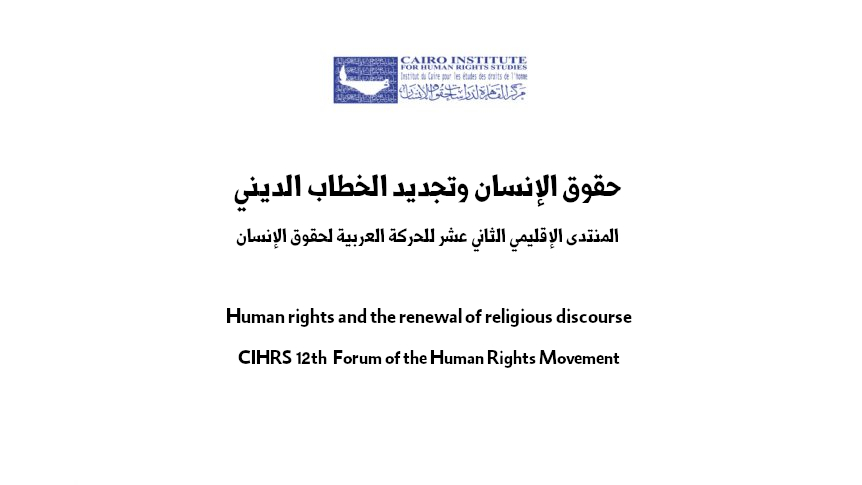The Cairo Institute for Human Rights Studies is holding the 12th Regional Forum of the Human Rights Movement on Tuesday,18 to 20 April 2006, under the title “Human rights and the renewal of religious discourse: How can the Arab world benefit from the experiences of the non-Arab Islamic world?” It is being held in cooperation with the Swedish Institute in Alexandria and the Liberal Islam Network in Indonesia, in coordination with the International Federation of Human Rights and the Euro-Mediterranean Network for Human Rights, and with funding from the European Commission. Approximately 40 participants will attend, including Islamic intellectuals, researchers specialized in Islamic studies, legal specialists, and Islamic political activists from 14 countries (Indonesia, Malaysia, South Africa, Iran, Sudan, Qatar, Sweden, Lebanon, Syria, Iraq, Morocco, Tunisia, Yemen, and Egypt).
A number of academics, political activists and legal specialists will participate by presenting papers, commenting on them, and chairing sessions, including: Abdullah Naim (Sudan), Hamed Reza Ayatollah (Iran), Zeina Anwar (Malaysia), Hamed Besha’ib (Indonesia), Muhammad Shahib (South Africa), Abdel Qader Riyadhi (Indonesia), Azio Mardi Adhra (Indonesia), Muhammad Reza Wasfi (Iran), Rashed Al-Ghanoushi (Tunisia), Rafiq Abdel Salaam (Tunisia), Anne Sufi (Sweden), Hani Fahas (Lebanon), Muhammad Shahrur (Syria), Abdel Hamid Al-Ansari (Qatar), Radwan Al-Sayed (Lebanon), Radwan Ziyada (Syria), Saadeddin Al-‘Atmani (Morocco), Ghanem Jawad (Iraq), Muhammad Noureddin (Lebanon), Ali Saadeddin Al-Bianuni (Syria).
From Egypt, the following will participate: Nasr Hamed Abu Zeid, Amr Al-Wardani, Ali Mabrouk, Heba Raouf, Abdel Moneim Abul Fatouh, Mona Abaza, Gamal Al-Banna, and Amaal Abdel Hadi.
The Arabic-English bilingual Forum will take place over six sessions that address numerous topics, including:
– The predicament of religion and the state in the non-Arab Islamic world.
– The cultural, political, and intellectual Other in the view of the non-Arab Islamic world.
– Freedom of opinion, expression and belief, and the position of women and the religious Other in non-Arab Islamic discourse.
The forum will also hold four round table discussions on the responses of participants, with their various interests and backgrounds, to the forum’s primary question (how can the Arab world benefit from the experiences of the Islamic world?). Intellectuals and specialized academics from Malaysia, Iran, Indonesia, and South Africa will discuss their varied experiences with this issue. In another round table discussion, Arab legal specialists will present their responses regarding strengthening human rights in the Arab world. In a third round table, academics and intellectuals from the Arab world will present their responses, and in a fourth, a number of Islamic political figures from the Arab world will present their views on the same issue.
A number of academics and consultants participated with a great deal of effort in the forum’s preparation, including Nasr Hamed Abu Zeid, professor of Islamic studies at Leiden University in Holland and the Ibn Rushd chair of Islam and humanities at Utrecht University (Holland), Abdullah Naim, professor of law at Emory University in the United States of America, and Mona Abaza, assistant professor of sociology at the American University in Cairo.
Share this Post

